Thijs Biersteker makes climate change tangible by turning data into design
by Chahna TankOct 15, 2025
•make your fridays matter with a well-read weekend
by Pooja Suresh HollannavarPublished on : Dec 09, 2024
Whether you support or detest it, there is no escaping the chatter around COP (The Conference of the Parties)—the UN Framework Convention on Climate Change's (UNFCCC) international climate summit. The 29th edition of this annual summit, COP29, was held at the Baku Stadium in Baku, Azerbaijan, from November 11 - 22, 2024. As I stepped into the event’s primary venue, I was struck by the scale. At the onset, this gathering of global leaders, activists and innovators was not merely a contingent platform; it was an opportunity for nearly 200 nations to come together, to address the most urgent, collective challenge we face—climate change. Yet, despite seemingly well-intentioned efforts, it ensued into a mixed bag of progress, recounting, mitigations and most of all, disappointment.
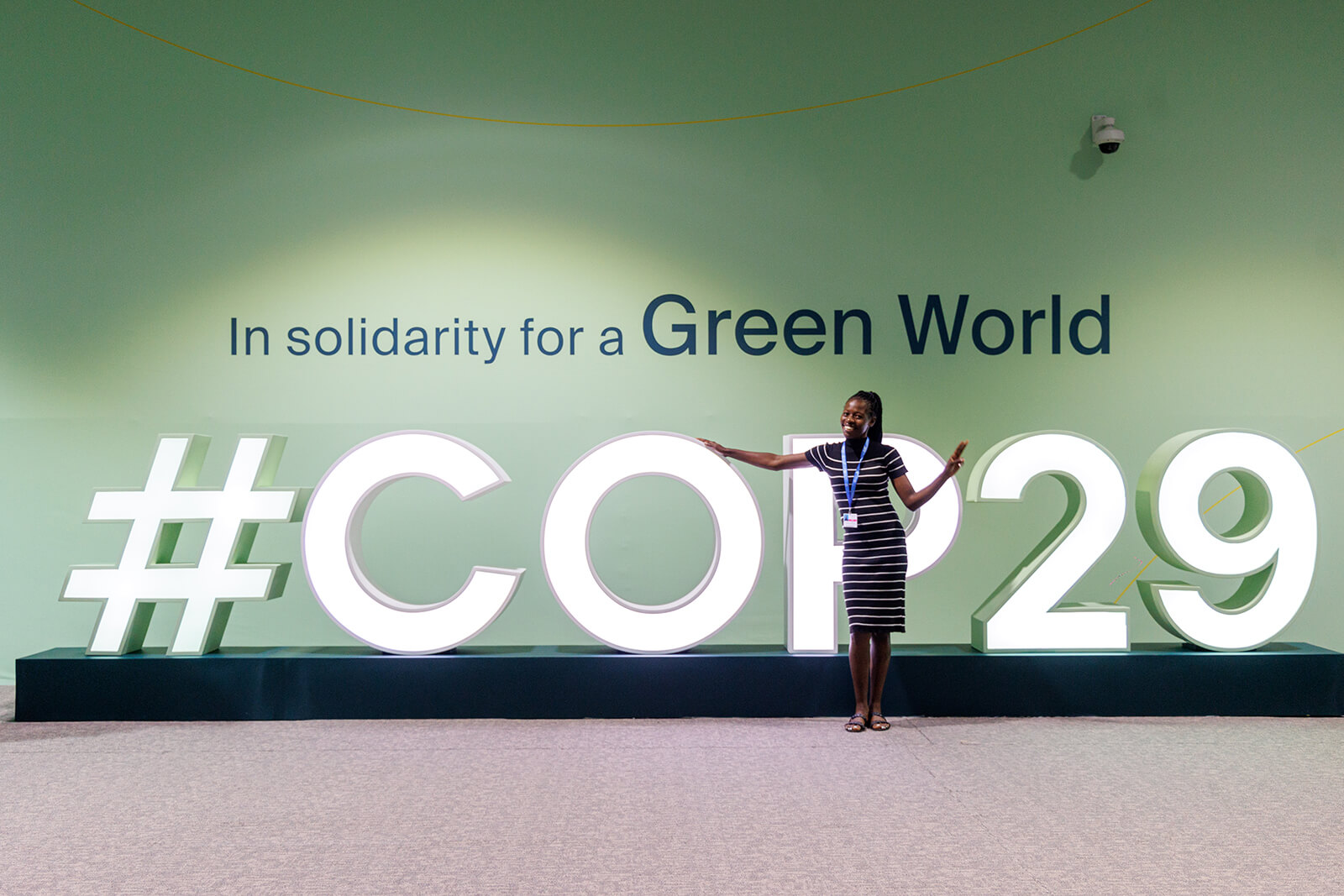
Complex, diverse perspectives rendered the general atmosphere at COP29, with participants ranging from seasoned negotiators and government officials to passionate youth leaders and representatives from NGOs, as well as school children from the world over. Each brought their unique viewpoints on climate change and its impact, creating a rich dialogue underscored by both, hope and frustration.
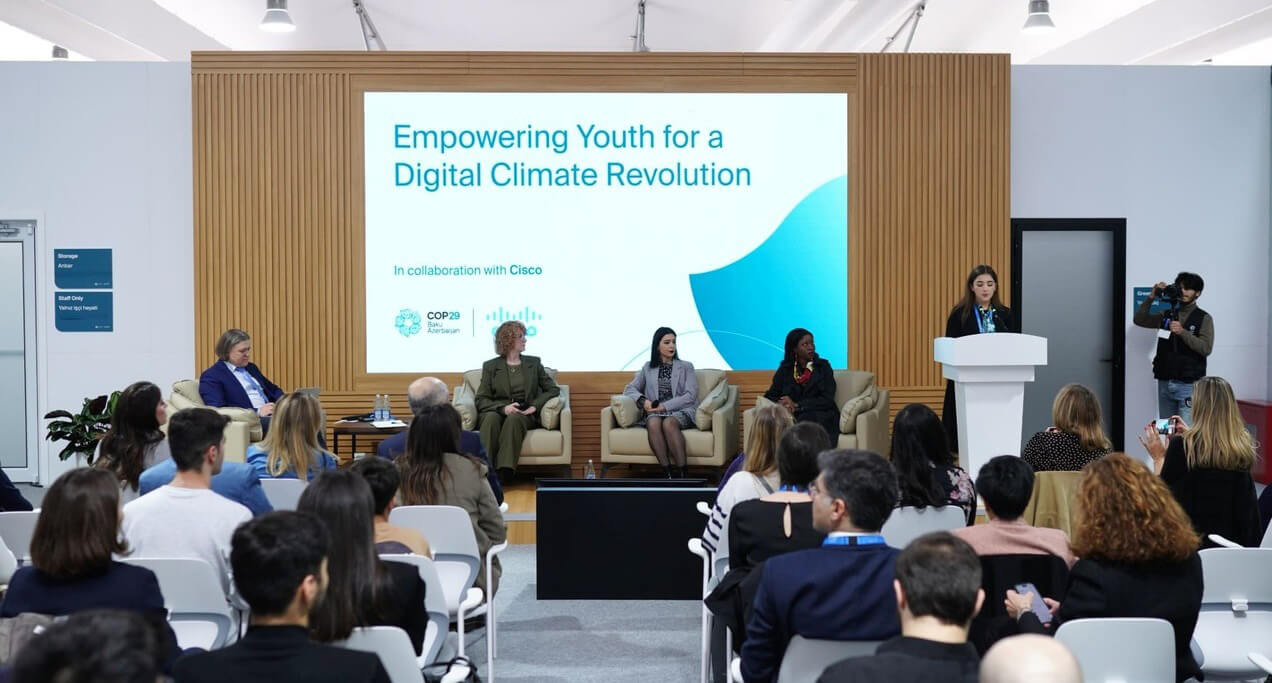
While there were moments of optimism, such as discussions on innovative technologies and collaborative initiatives, there were also stark reminders of the challenges we face and live with. The most notable tension was woven around the financial commitments to developing nations. Many delegates expressed chagrin with the agreed target to triple climate finance from $100 billion to $300 billion annually by 2035, arguing that this figure fell short of their urgent needs. Countries such as India and Nigeria strongly voiced their disapproval, highlighting a significant disconnect between developed nations' commitments against the bleak realities faced by those most affected by climate change.
For the last 29 years, world leaders, experts, dignitaries and activists have been calling for urgent action. This sense of urgency palpably increases each year—a recurring theme throughout COP29. Multiple panels, plenaries, meetings and discussions emphasised that time is running out to mitigate the worst impacts of climate change. Experts presented alarming data on rising temperatures and extreme weather events, reinforcing the need for swift and decisive measures. The message was clear: we cannot afford complacency. But, will it move those who need to be moved the most? Will the individuals, organisations and countries that contribute conspicuously to climate change (with little to no regard) listen, acknowledge or change? That remains to be seen.
One of the critical topics addressed at the 29th Conference of the Parties was the role of buildings in contributing to global emissions. In its unique positioning, the construction sector is a significant source of greenhouse gases but also presents myriad, serious opportunities for technology innovation in sustainable practices. Conversations around green building technologies highlighted how this sector can become a leader in reducing emissions, actively spearheading and contributing to a green revolution. Discussions on subscribing to sustainable materials and energy-efficient designs that can redefine how we construct our cities were plentiful. On a plenary focused on unifying forces for net zero, Dr Andrew Forrest AO, executive chairman, Fortescue said, “One of my very distant colleagues says, ‘Drill Baby Drill'. But that does not create jobs. It maintains the production line as is. I want to counteract that reference and say with reference to renewables, in particular – Build Baby Build. Do that and you will also create employment for so long for so many!”
Decarbonisation, a vital, topical focus across various sectors at COP28 in Dubai, kept its status quo as a critical, evaluative point of discussion this year. Sessions dedicated to industry-specific strategies highlighted inventive approaches to reducing carbon footprints. Unsurprisingly, it was made evident that collaboration among industries is key to reducing emissions. The commitment to decarbonisation must be holistic, involving all stakeholders, in a unified effort.
[COP] serves as a reminder of the immense potential of the next generation to lead us toward a more sustainable future. Simultaneously, it also reflects how conveniently we turn to the younger generations to solve a problem they merely inherited.
A crucial aspect of effective climate action also delineated the need for robust data measurement and accountability mechanisms—after all, we cannot fix what we cannot measure. With accurate emissions tracking, it becomes easier to hold nations accountable for their commitments. New tools and frameworks introduced at the conference aimed to enhance data collection efforts, ensuring transparency in climate finance and progress toward targets.
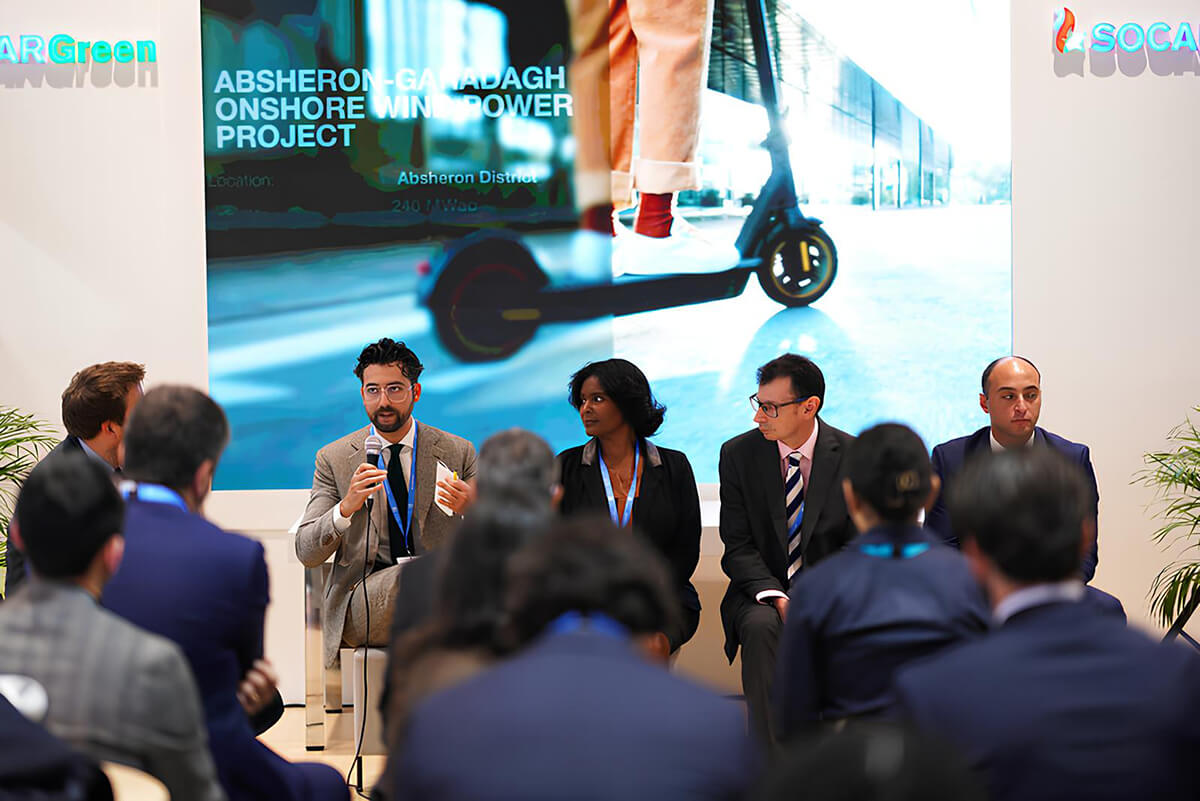
Youth empowerment was another powerful theme at COP29. Most, if not all, major sessions were centred on equipping young leaders with the green skills necessary to drive sustainable practices in their communities. Young activists passionate about environmental justice and innovation had much to share and their energy was truly infectious. It serves as a reminder of the immense potential of the next generation to lead us toward a more sustainable future. Simultaneously, it also reflects how conveniently we turn to the younger generations to solve a problem they merely inherited.
Finally, discussions around energy efficiency versus renewable energy sources revealed an often-overlooked aspect of climate strategy. While renewable energy is crucial for reducing reliance on fossil fuels, energy efficiency must also be prioritised for maximum impact. Panels addressed this imbalance, advocating for a more integrated approach that values both aspects equally.
COP29, a world stage for individuals, organisations and nations which otherwise might not get enough opportunities to be heard on a global scale, to voice their concerns and promises, also witnessed a poignant moment during a session focused on climate justice: representatives from small island states expressed their existential fears regarding rising sea levels. Those of us aware of the disappearing island nation of Tuvalu will understand that their fears are rightly, presciently rooted in a disturbing and rapidly approaching reality.
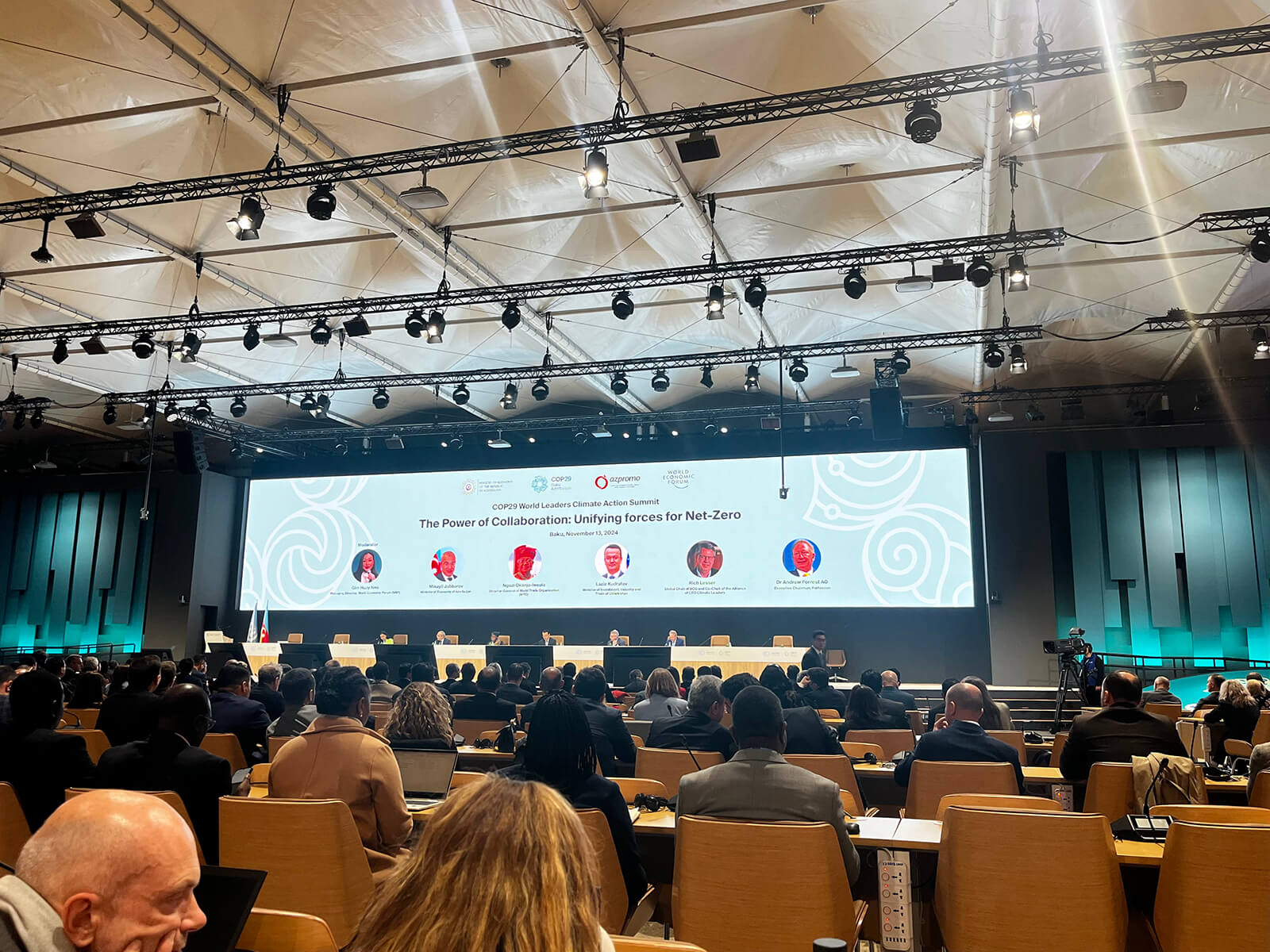
Their stories underscored the urgency of equitable financial allocations to support those most affected by climate change. To address this, transparency in financial commitments must be prioritised, accountability in emissions reporting must be ensured and empowering youth as leaders in sustainability efforts must be adhered to. However, for a call of trillions, a commitment of only $300 billion was promised.
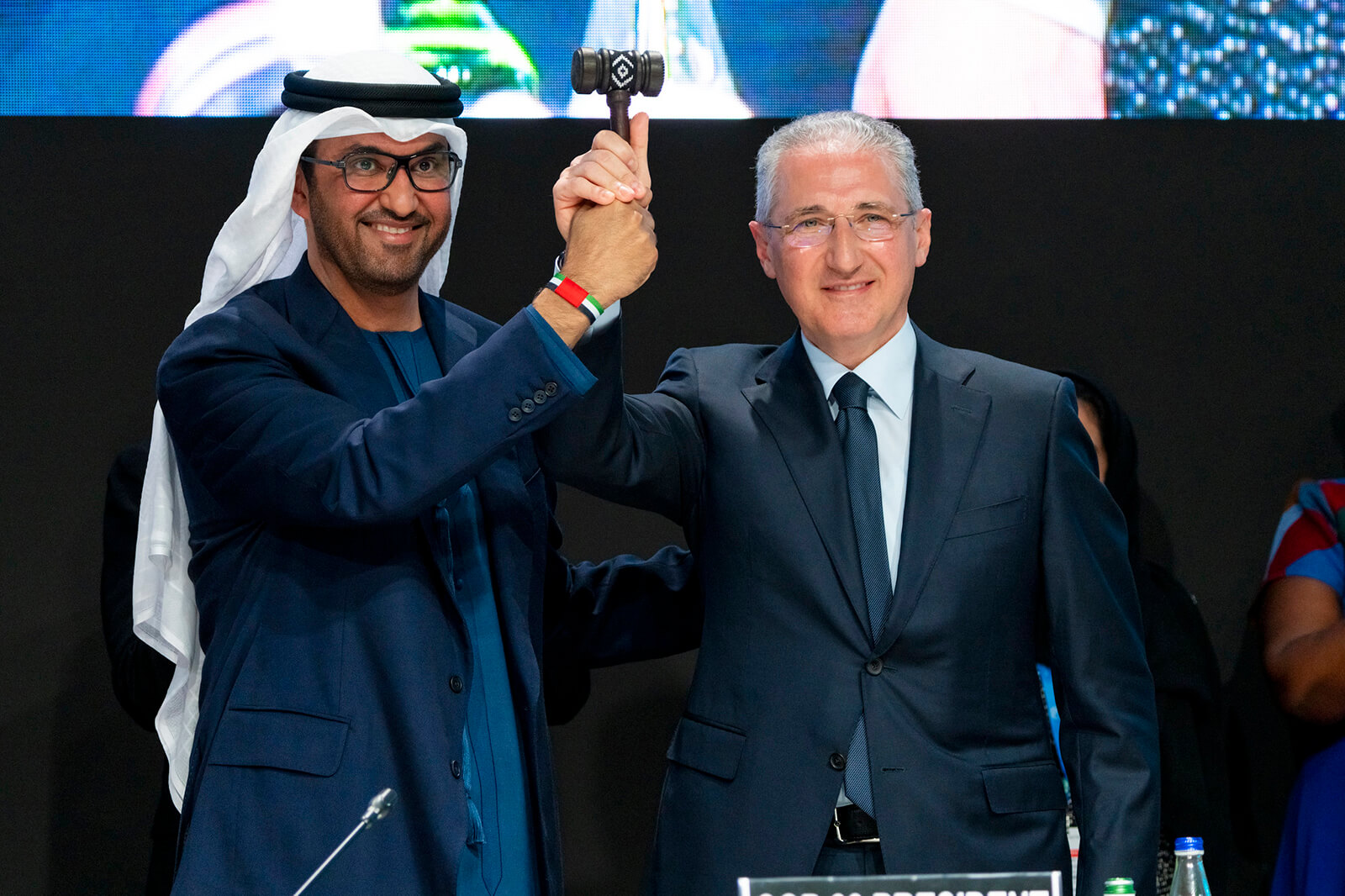
The sentiment of ‘those who broke it, must pay to fix it’ is widespread and supported in the climate community. Yet, when it is time for action, ‘those who broke it’ stay largely silent, resulting in limited global action—one of the biggest roadblocks to solving the climate crisis. The blame game leads nowhere. The conversations stagnate and the same issues and perils, in different capacities, are repeatedly acknowledged and revisited as key topics in future conferences and debates.
While there is cautious optimism regarding the commitments made at the United Nations’ flagship climate conference, the reality is that these intentions remain largely unfulfilled. Relying solely on the younger generation to drive this Goliathan change is simply insufficient; tangible actions by elders, like those at the conference and those in power, are essential. As COP29’s president-elect Mukhtar Babayev emphasised, “We need much more from all of you,” highlighting the urgent need for leadership and concrete steps rather than mere rhetoric. Outgoing president Sultan Al Jaber echoed this sentiment stating, “Let actions speak louder than words,” underscoring the criticality of delivering real results over promises and near-empty rhetorics.
COP29 was held in Baku, Azerbaijan from November 11– 22, 2024.
by Bansari Paghdar Oct 16, 2025
For its sophomore year, the awards announced winners across 28 categories that forward a contextually and culturally diverse architectural ecosystem.
by Mrinmayee Bhoot Oct 14, 2025
The inaugural edition of the festival in Denmark, curated by Josephine Michau, CEO, CAFx, seeks to explore how the discipline can move away from incessantly extractivist practices.
by Mrinmayee Bhoot Oct 10, 2025
Earmarking the Biennale's culmination, STIR speaks to the team behind this year’s British Pavilion, notably a collaboration with Kenya, seeking to probe contentious colonial legacies.
by Sunena V Maju Oct 09, 2025
Under the artistic direction of Florencia Rodriguez, the sixth edition of the biennial reexamines the role of architecture in turbulent times, as both medium and metaphor.
 surprise me!
surprise me!
make your fridays matter
SUBSCRIBEEnter your details to sign in
Don’t have an account?
Sign upOr you can sign in with
a single account for all
STIR platforms
All your bookmarks will be available across all your devices.
Stay STIRred
Already have an account?
Sign inOr you can sign up with
Tap on things that interests you.
Select the Conversation Category you would like to watch
Please enter your details and click submit.
Enter the 6-digit code sent at
Verification link sent to check your inbox or spam folder to complete sign up process



by Pooja Suresh Hollannavar | Published on : Dec 09, 2024
What do you think?